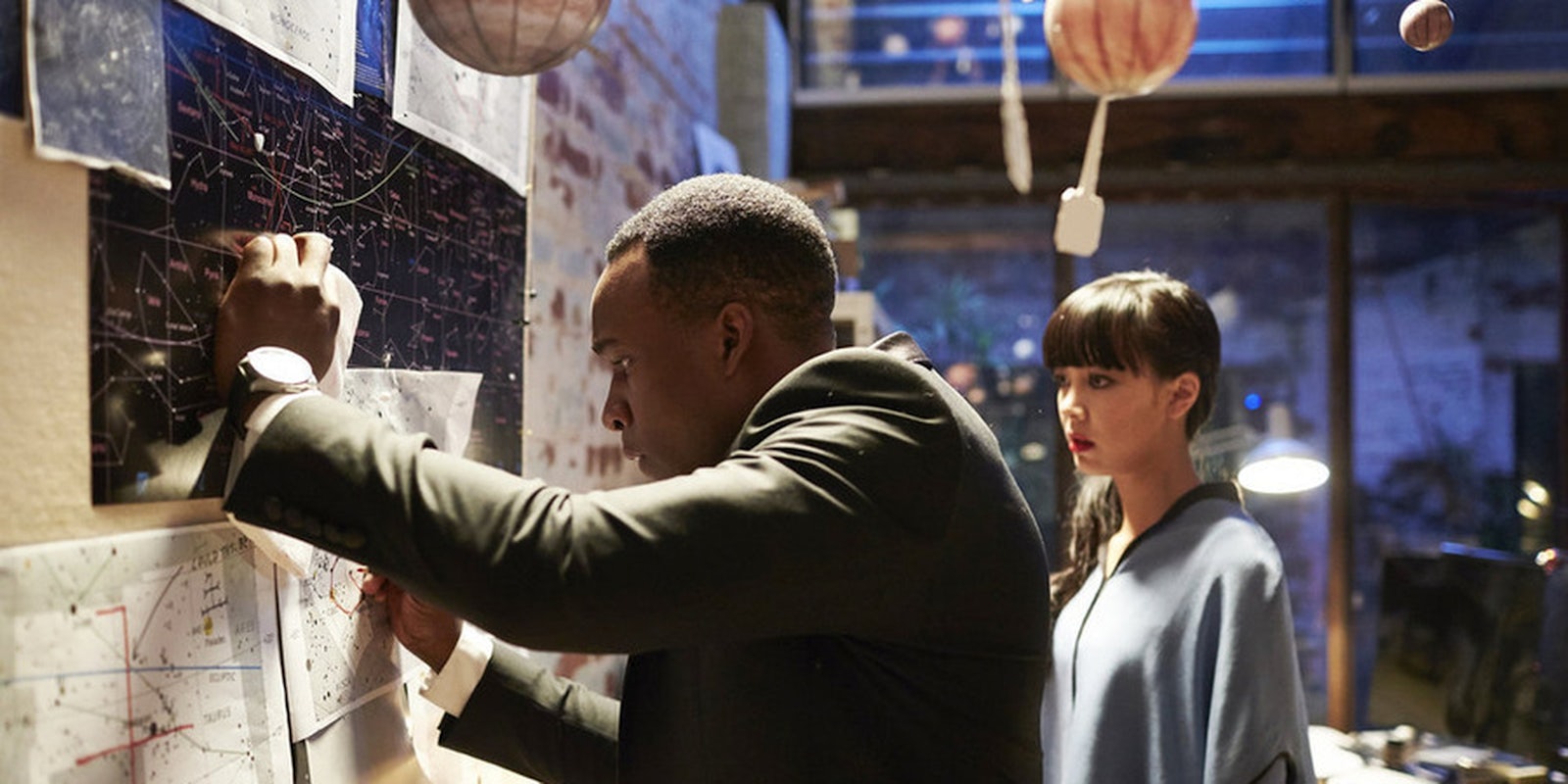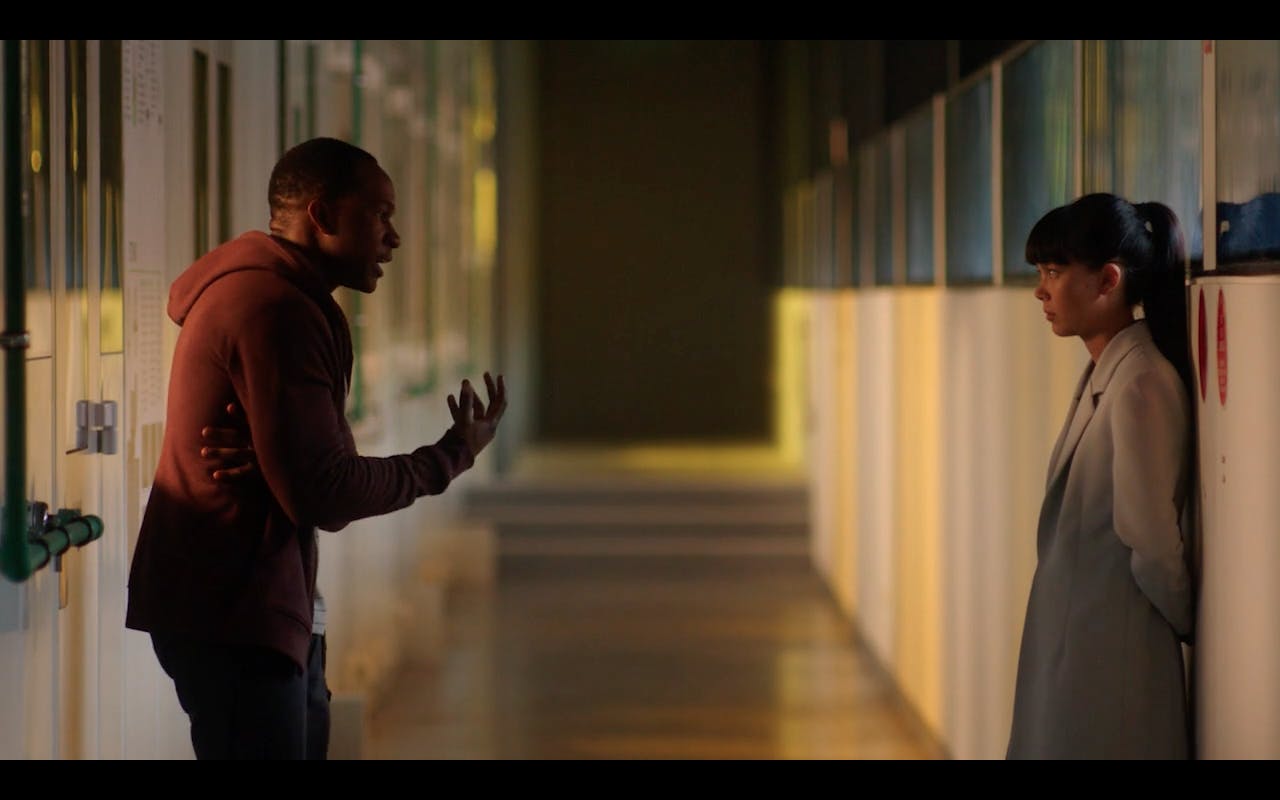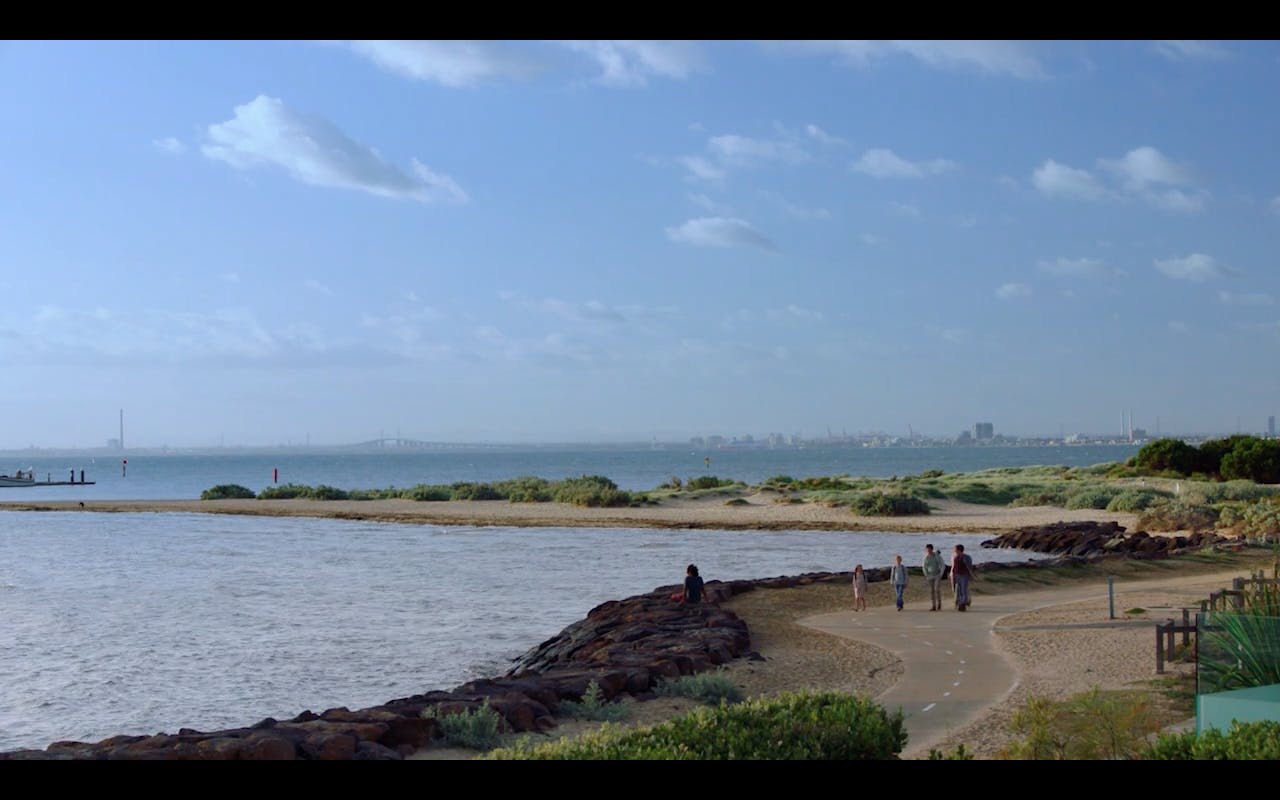The SyFy channel’s new mini-series Childhood’s End, a three-part event running tonight through Wednesday, has a lot riding on it. SyFy has chosen an extremely ambitious project for its sally into the retro-sci-fi trend. Childhood’s End is a sci-fi classic written by one of the greats but never before adapted since its 1953 publication.
Fans of the original Arthur C. Clarke novel will be relieved: The book holds up surprisingly well. Still, despite all the calibration writer Matthew Graham made to make the world Clarke envisioned feel more like the one we’re in today, some things may strike new viewers as stilted.
The current cultural climate feels ripe for the recent revival of interest in classic literary science fiction: We’ve arrived at a moment where we can truly look back at the kinds of futures the greats of the genre envisioned and take stock of how accurate they were.
We’re going to Mars. Concerns over everything from cybersecurity and Internet freedom to sentient robots make our impending societal dystopia seem closer than ever. And when Amazon commissioned an adaptation of Philip K. Dick’s classic The Man in the High Castle, who could have known that the alternate history of Nazi victory in World War II would stream simultaneously with Donald Trump suggesting that all people of a certain religious faith be forced to register and carry ID cards.
With all that in mind, an adaptation of Clarke’s classic utopian nightmare might seem like an easy sell. But plenty about Childhood’s End feels like a quizzical thought experiment that doesn’t always work—perhaps more so today than in the ’50s. It’s not just that the writer of 2001: A Space Odyssey managed to envision a future somehow both totally foreign and totally similar to the one we currently occupy. It’s that many of the tropes that hit closest to home are ones that Clarke codified 60 years ago in Childhood’s End, tropes that have now become so commonplace we hardly second-guess them. Meanwhile other facets of the novel are difficult to update, though writer Graham (creator of cult hit Life on Mars) has done his best.
Many of Childhood’s End’s viewers will be ones who have joked about welcoming our new alien overlords, but who have never encountered Clarke’s epic thought experiment in doing just that. During the three-part, six-hour series, aliens peacefully invade earth, immediately initiate an alien-governed utopia, and then nurse the results for 100 years. The “Overlords” are an alien race whose motivations aren’t clear. Yet they bring peace and rest for a turgid world so quickly that docile contentment—including an end to interest in artistic, cultural, and scientific pursuit—seems to settle over the human population like so much poppy dust.
This premise is a hard sell in today’s robust cultural and political climate, which is why the SyFy production underscores the impact of the Internet, Twitter hashtags, and the demise of print news upon the alien’s benevolent invasion, none of which Clarke could have foreseen in 1953. Modern humanity in this adaptation is far more ready to subvert and question the Overlords than Clarke’s civilization was, yet the overall effect of acceptance and acquiescence still seems to contain a surreal echo of fascism’s impact on Nazi Germany. It’s also, for a story about a human population that settles back and does nothing for a century or so, surprisingly gripping.
The riskiest aspect of Clarke’s experiment seems even riskier today. His emphasis on the total breakdown of scientific inquiry after the alien invasion feels implausible in print, but in these days when science has taken us further into space than ever before, it’s a stretch to ask the average viewer to accept that mankind would simply accept the aliens at face—or, rather, voice—value, without doing any further exploration into their origins.
In order to make this all feel palatable, the SyFy adaptation tweaks Clarke’s version of Childhood’s End in ironic ways. In Clarke’s novel, Earth’s original alien ambassador is a consummate diplomate, the U.N. Secretary-General. In the revamped SyFy version he’s a homespun, all-American blond country boy, complete with name change from “Rikki” to “Ricky.”
Ricky is easily manipulated by the aliens thanks to his love for his dead wife, even as he and his second wife lament their inability to have children; meanwhile, a somewhat cynical subplot in the Clarke novel regarding a psychic woman and her philandering husband has metamorphosed into a hymn to the struggle to protect the organic nuclear family—also wholesome, American, and blonde. New to the ensemble are an evangelical religious zealot and a hard-boiled cynical journalist played by perennial SyFy cameo artist Colm Meaney.
Amid these changes, Milo Rodricks, the scientist who refuses to let his professional interests in astronomy and human evolution subside, is even more compelling in this adaptation than Clarke’s original conception of him. His eagerness and insatiable curiosity keeps Childhood’s End feeling emotionally honest.
So, too, does the imposing presence of the alien representative Karellen, played by Game of Thrones‘ Charles Dance. Karellen, who for the first third of the series is known to humans by his voice only, has the difficult task of balancing his species’ larger goals with his basic empathy for humanity. That he pulls it off with dignity is a testament to Dance as well as to the strange sense of compassion lurking at the center of Childhood’s End.
The looming question, and ultimate revelation, of what the Overlords’ coming means for humanity may startle some and bore others; but as with the original Clarke novel, Childhood’s End is as much about the puzzling but beautiful moments along the way as it is the ultimate conclusion.
Photo courtesy of NBC/SyFy




